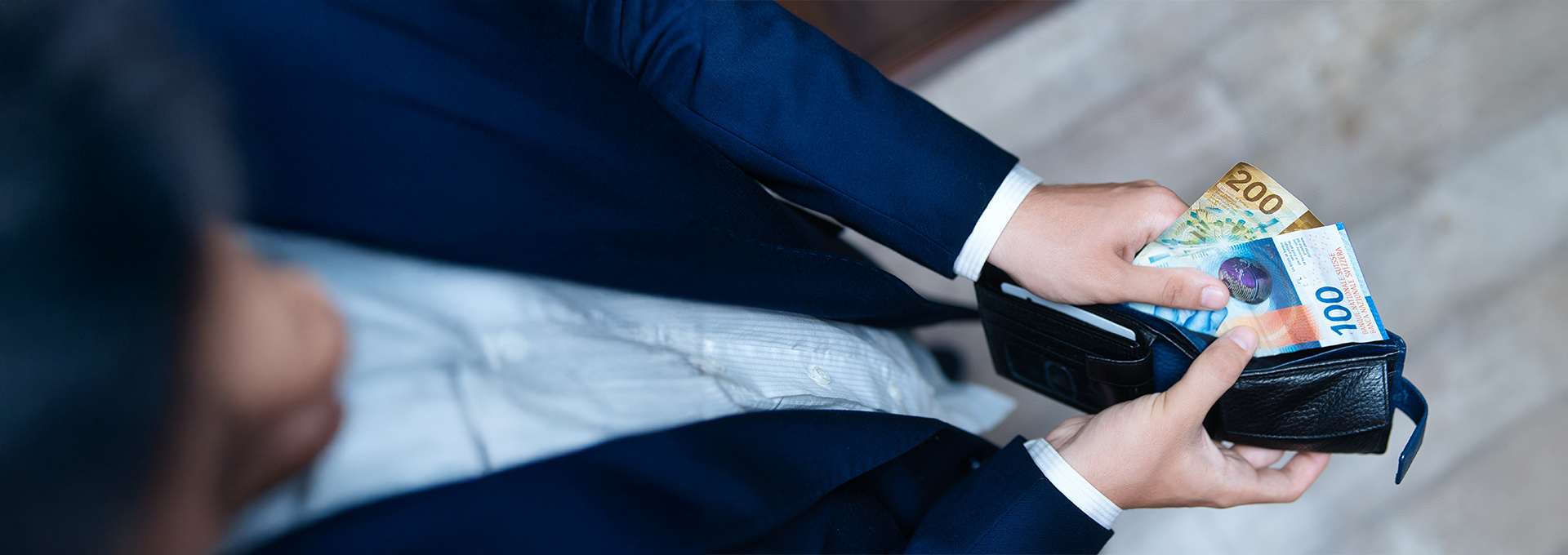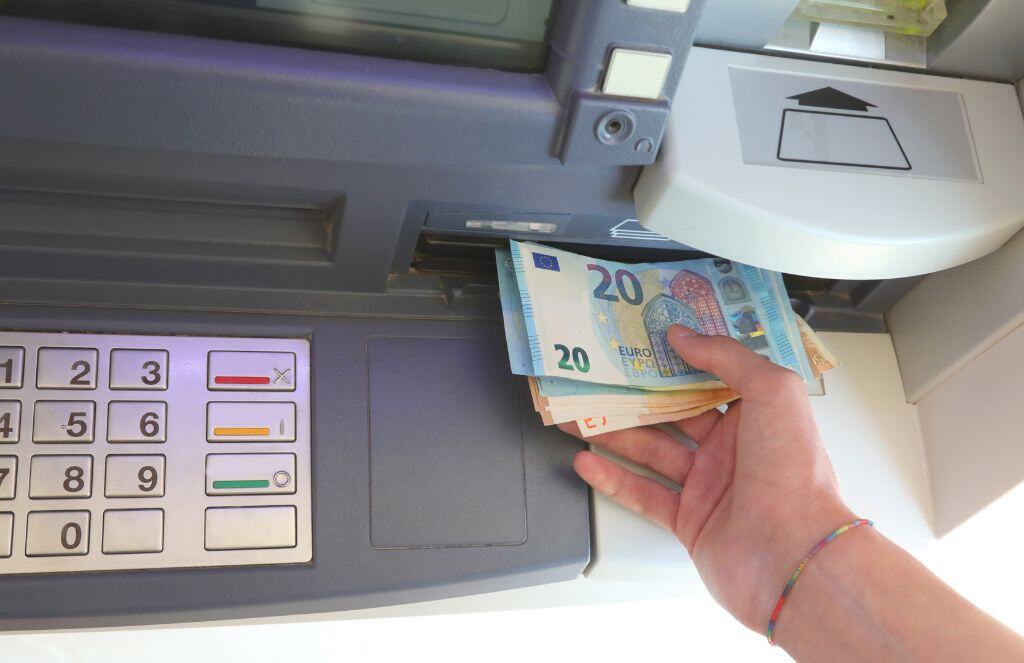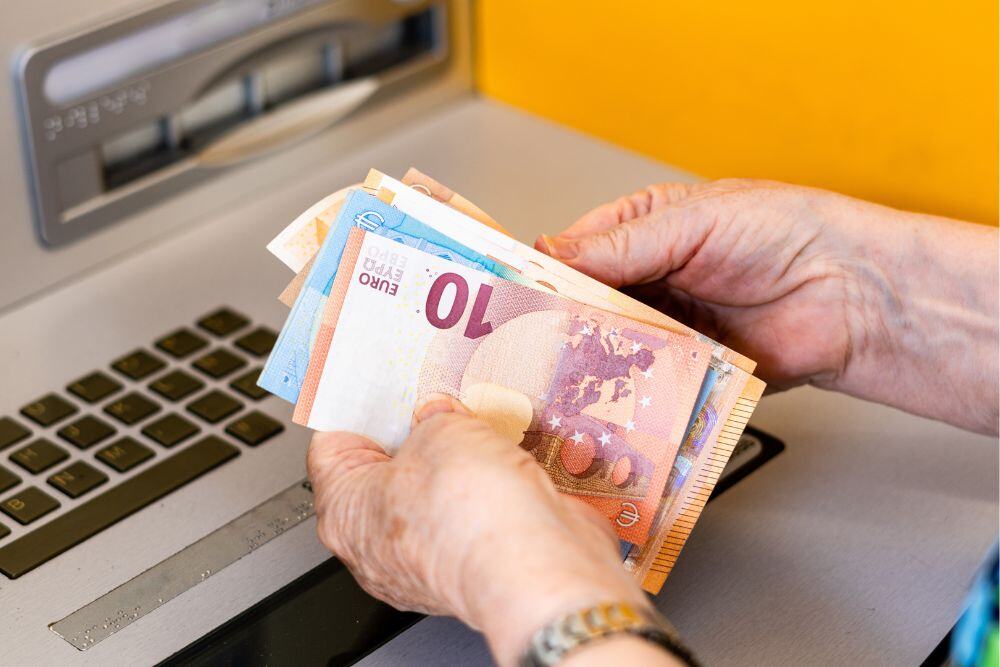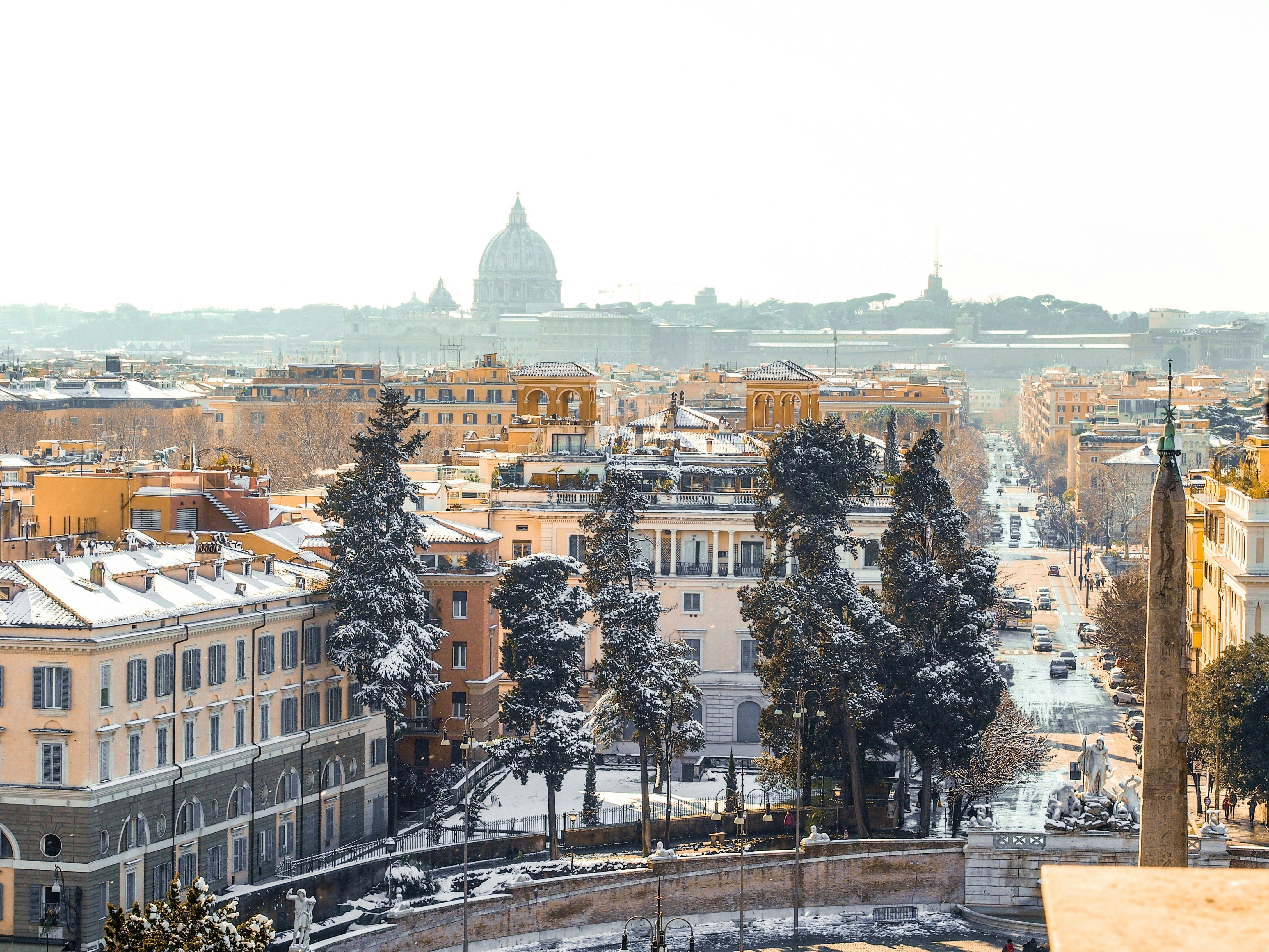Tipping in Italy - Is it Customary to Tip in Italy?
There are so many reasons why you should visit Italy, from its ancient historical roots to the incredible Italian cuisine. But when it comes to showing appreciation for services received, should you leave tips?
Here, you'll find everything you need to know about tipping in Italy. We'll walk you through when you should and shouldn't leave a tip, the best way of tipping, and more.
What is the Tipping Culture in Italy?
In Italy, tipping is seen as a spontaneous and voluntary act rather than obligatory, and it isn't a common practice like it is in some other countries. However, it is always appreciated as a sign of having received good service, especially in tourist-heavy areas where businesses tend to be busier.
Why is Tipping Uncommon in Italy?

There are a few reasons why tipping is uncommon in Italy, but the main reason is that Italian culture prides itself on providing good service and hospitality as part of the dining experience. As such, providing a tip on top of the bill isn't expected because exceptional service should be provided as standard.
Many restaurants in Italy also add a service charge to the bill, which takes away the need to provide separate tips. Likewise, service staff in Italy are generally paid a higher wage than servers in other European countries, so there isn't such a reliance on tips to supplement their wages.
Another reason why tipping in Italy is so uncommon is simply because there isn't an Italian tipping culture. Traditional Italian values centre around sincerity, and in some regions, tipping may be seen as being driven by obligation rather than genuine appreciation.
When Should You Consider Leaving a Tip?

While tipping isn't expected in Italy, you can still show your appreciation for excellent service by leaving a few Euros behind in certain situations. These include:
Tipping Servers
You can tip a server in Italy if you feel you have received exceptional service and the food was particularly good. This is usually only the case in sit-down restaurants, however, and you should also check if a service charge has been added to the restaurant bill.
What is a Fair Tip to Leave a Server in Italy?
As a general rule of thumb, an appropriate tip for a server in Italy is around €1 EUR per diner, although many people also choose to round the bill up instead. So, should your bill total come to €46 EUR, you can round it up to €50 EUR ($82 AUD).
Tipping Hotel Staff
At full-service hotels, you can tip certain members of staff as a sign of appreciation for their assistance. This includes hotel porters, housekeeping staff, and concierge.
What is a Fair Tip to Leave Hotel Staff in Italy?
A typical tip for a hotel porter would be €1 EUR ($1.60 AUD) per bag, and housekeeping staff should be tipped the same amount per day. The amount you'll tip a concierge is ultimately up to you and will depend on the level of service you've received and the complexity of your request.
Tipping Tour Guides
Many people choose to tip a tour guide after a tour, and it's quickly becoming common practice to do so. This is especially true if you've received a private or tailor-made tour.
What is a Fair Tip to Leave a Tour Guide in Italy?
You should tip tour guides around 10% of the total cost of the tour. So, if you paid €100 EUR for a tour, a tip of €10 ($16 AUD) would be considered enough.
Tipping Taxi Drivers
While taxi drivers don't typically expect a tip, it is appreciated if they've gone the extra mile and helped you load and unload luggage into the car or have gotten you to your destination without hitting traffic.
What is a Fair Tip to Leave a Taxi Driver in Italy?
There's no hard and fast rule here, and a few Euros on top of the total fare would be appreciated.
Italian Tipping Etiquette: How to Give a Tip?

As tipping isn't ingrained in Italian culture, there are certain procedures you should follow to avoid embarrassment for both you and the receiver. Firstly, always make sure you tip in cash, even if you're paying the bill using a card. This additional tip ensures that the recipient receives the full amount rather than it going into the business's account.
It's also important to remember that Italians value sincerity, so don't try to show off by tipping too much as this can be seen as rude or crass. Likewise, don't make a big scene about leaving a tip. Instead, either leave it on the table for your server to collect or discreetly hand it over.
Top Tip: Since you should always leave a cash tip in Italy, you'll need to make sure you have plenty of cash on your person.
Are There Any Cases Where You Should Avoid Tipping in Italy?
There are a couple of instances in which you don't need to worry about tipping in Italy at all. The first of these is for spa treatments, where a service charge will usually be added to the total cost.
You also don't need to tip bartenders in Italy, and workers in coffee shops also don't need to be tipped. However, in these instances, you can leave a tip in a tip jar or on the table if you've received table service, but there's no need to feel obliged to do so.
Tipping isn't required in fast food restaurants either, as this is considered self-service. Likewise, you don't need to tip in any store where you've had to use a self-service checkout or are simply buying groceries.
Heading to Italy? Get the Best Rates of Euros at Crown Currency
Make sure you have plenty of cash on you for tipping in Italy before you travel by getting the best rates of AUD to EUR with zero commission fees and no hidden costs. Visit your nearest Crown Currency Exchange store today!
FAQs
What is the Tipping Culture in Italy?
In Italy, tipping is seen as a spontaneous and voluntary act rather than obligatory, and it isn't a common practice like it is in some other countries. However, it is always appreciated as a sign of having received good service, especially in tourist-heavy areas where businesses tend to be busier.
Why is Tipping Uncommon in Italy?
There are a few reasons why tipping is uncommon in Italy, but the main reason is that Italian culture prides itself on providing good service and hospitality as part of the dining experience. As such, providing a tip on top of the bill isn't expected because exceptional service should be provided as standard.
Many restaurants in Italy also add a service charge to the bill, which takes away the need to provide separate tips. Likewise, service staff in Italy are generally paid a higher wage than servers in other European countries, so there isn't such a reliance on tips to supplement their wages.
Another reason why tipping in Italy is so uncommon is simply because there isn't an Italian tipping culture. Traditional Italian values centre around sincerity, and in some regions, tipping may be seen as being driven by obligation rather than genuine appreciation.
When Should You Consider Leaving a Tip?
While tipping isn't expected in Italy, you can still show your appreciation for excellent service by leaving a few Euros behind in certain situations. These include:
Tipping Servers
You can tip a server in Italy if you feel you have received exceptional service and the food was particularly good. This is usually only the case in sit-down restaurants, however, and you should also check if a service charge has been added to the restaurant bill.
What is a Fair Tip to Leave a Server in Italy?
As a general rule of thumb, an appropriate tip for a server in Italy is around €1 EUR per diner, although many people also choose to round the bill up instead. So, should your bill total come to €46 EUR, you can round it up to €50 EUR ($82 AUD).
Tipping Hotel Staff
At full-service hotels, you can tip certain members of staff as a sign of appreciation for their assistance. This includes hotel porters, housekeeping staff, and concierge.
What is a Fair Tip to Leave Hotel Staff in Italy?
A typical tip for a hotel porter would be €1 EUR ($1.60 AUD) per bag, and housekeeping staff should be tipped the same amount per day. The amount you'll tip a concierge is ultimately up to you and will depend on the level of service you've received and the complexity of your request.
Tipping Tour Guides
Many people choose to tip a tour guide after a tour, and it's quickly becoming common practice to do so. This is especially true if you've received a private or tailor-made tour.
What is a Fair Tip to Leave a Tour Guide in Italy?
You should tip tour guides around 10% of the total cost of the tour. So, if you paid €100 EUR for a tour, a tip of €10 ($16 AUD) would be considered enough.
Tipping Taxi Drivers
While taxi drivers don't typically expect a tip, it is appreciated if they've gone the extra mile and helped you load and unload luggage into the car or have gotten you to your destination without hitting traffic.
What is a Fair Tip to Leave a Taxi Driver in Italy?
There's no hard and fast rule here, and a few Euros on top of the total fare would be appreciated.
Italian Tipping Etiquette: How to Give a Tip?
As tipping isn't ingrained in Italian culture, there are certain procedures you should follow to avoid embarrassment for both you and the receiver. Firstly, always make sure you tip in cash, even if you're paying the bill using a card. This additional tip ensures that the recipient receives the full amount rather than it going into the business's account.
It's also important to remember that Italians value sincerity, so don't try to show off by tipping too much as this can be seen as rude or crass. Likewise, don't make a big scene about leaving a tip. Instead, either leave it on the table for your server to collect or discreetly hand it over.
Top Tip: Since you should always leave a cash tip in Italy, you'll need to make sure you have plenty of cash on your person.
Are There Any Cases Where You Should Avoid Tipping in Italy?
There are a couple of instances in which you don't need to worry about tipping in Italy at all. The first of these is for spa treatments, where a service charge will usually be added to the total cost.
You also don't need to tip bartenders in Italy, and workers in coffee shops also don't need to be tipped. However, in these instances, you can leave a tip in a tip jar or on the table if you've received table service, but there's no need to feel obliged to do so.
Tipping isn't required in fast food restaurants either, as this is considered self-service. Likewise, you don't need to tip in any store where you've had to use a self-service checkout or are simply buying groceries.












.png)

